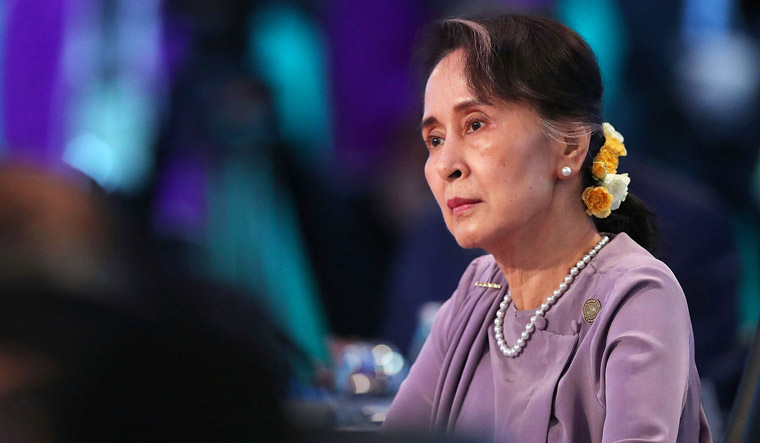Addressing judges in The Hague, Myanmar's civilian leader Aung San Suu Kyi admitted that the army may have used "disproportionate force" but said that did not prove it was trying to wipe out Rohingya Muslims. The Nobel peace laureate denied 'genocide intent'.
The African state of The Gambia has taken Myanmar to the International Court of Justice (ICJ) over a bloody 2017 military crackdown in which thousands of people were killed and around 740,000 Rohingya fled to neighbouring Bangladesh. The Muslim majority nation has accused Myanmar of breaching the 1948 genocide pact.
Suu Kyi argued that the army was responding to an attack by hundreds of Rohingya militants in 2017. "Regrettably The Gambia has placed before the court a misleading and incomplete picture of the situation in Rakhine State," Suu Kyi, wearing traditional Burmese dress and flowers in her hair, told the court. She also said that Myanmar was conducting its investigation and added that genocidal intent cannot be the only hypothesis.
Suu Kyi was once hailed for her defiance of Myanmar's junta. This time she was on the side of the southeast Asian nation's military. The Rohingya are widely regarded as illegal immigrants in Myanmar.
"It cannot be ruled out that disproportionate force was used by members of the defence services in some cases in disregard of international humanitarian law, or that they did not distinguish clearly enough between fighters and civilians," she said.
Last year, UN investigators concluded that Myanmar's treatment of the Rohingya amounted to genocide while rights groups have detailed a catalogue of alleged abuses.
Pro-Myanmar protesters gathered in front of the International Court of Justice, carrying placards with Aung San Suu Kyi's face reading "We stand with you" and carrying pictures of the leader.
Gambian Justice Minister Abubacarr Tambadou, who opened his country's case, urged the court to tell her to "stop the genocide".
ICJ judges have only once before ruled that genocide was committed, in the 1995 Srebrenica massacre in Bosnia.
Myanmar faces several legal challenges over the fate of the Rohingya, including a probe by the International Criminal Court — a separate war crimes tribunal in The Hague — and a lawsuit in Argentina personally mentioning Suu Kyi.


